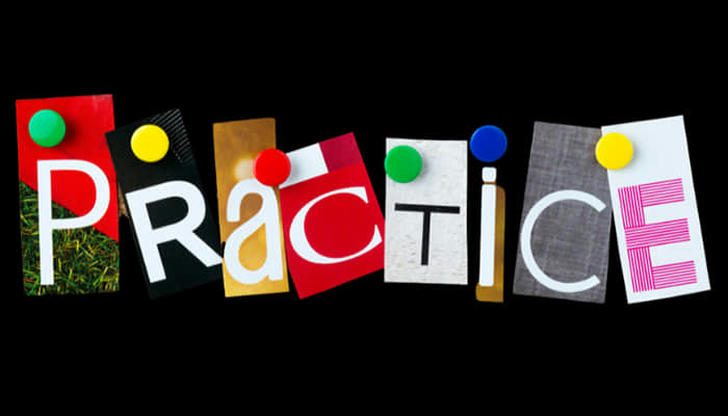7 Effective Study Techniques to Boost Your Learning
As the new school year begins, are you feeling ready to tackle your studies? The right study methods can make all the difference, helping you learn more efficiently and stay motivated. Tonight, we’ll explore seven practical and highly effective study techniques that you can start using right away to enhance your learning experience.

1.Create Mind Maps
When we absorb information, it often feels chaotic and disorganized. To avoid being overwhelmed by irrelevant details, try using a mind map to structure and filter the information.
Follow these three steps to create an effective mind map:
• Build the Framework: Start with the main concept in the center and branch out into related topics.
• Optimize the Framework: Make sure the structure is clear and logical, refining it as you go.
• Fill in the Details: Add relevant information under each branch, creating a comprehensive map of your knowledge.
A mind map helps organize scattered ideas and concepts. By connecting information in a visual format, you can easily refer to it later and quickly find what you need when revising.

2.Break Free from the “Familiarity Illusion”
It’s easy to think we know something simply because we’re familiar with it, but this isn’t the same as truly understanding it. If you close the book and try to recall what you’ve just read, you may realize that you’ve forgotten a large portion of it.
How can you avoid this illusion of knowledge?
The “70-20-10 Rule” from action learning theory suggests that in order to master a skill, you should spend 10% of your time learning new information, 70% practicing, and 20% discussing and collaborating with others. Just hearing or reading new information isn’t enough. To truly understand it, you need to practice it, engage with it, and apply it in real-world situations. Only then will you have a solid grasp of the material.

3.Explain Concepts in Your Own Words
Most of the knowledge we encounter initially enters our “short-term memory.” To transfer this information into long-term memory, you need to process it deeply and meaningfully.
What does “processing” mean? It means taking the time to reframe the material in your own words. By explaining the concepts in a way that makes sense to you—using your own logic and language—you connect the dots and make the material more meaningful.
When you can confidently explain a concept in your own language, you’ve moved it from passive recognition to active knowledge. At this point, the material becomes a part of your long-term memory.

4.Focus on Quality Over Quantity
When it comes to memorization, less is often more. Instead of trying to memorize long paragraphs, focus on the core idea first, and then gradually build up the details.
Textbooks are full of rich information and details meant to help with understanding. However, attempting to memorize everything in a rush can lead to frustration. You may be able to memorize a lot of content, but when it comes time to recall that information, you might mix up the order or forget key details under pressure.
The key is to prioritize. Start with the essential concepts—those that form the foundation of the topic—and once you’ve solidified them, gradually add more details. This way, you’ll build a solid base and avoid the domino effect of forgetting everything when stressed.

5.Switch Things Up with “Channel Switching”
Concentrating on the same subject for hours can lead to burnout and mental fatigue. Instead, try alternating between different subjects to keep your brain engaged.
The principle behind this technique is similar to fitness. You wouldn’t spend two hours doing only chest exercises at the gym. You would alternate between exercises to give your muscles time to recover. The same concept applies to learning. By switching between different subjects or types of tasks, you allow your brain time to rest and reset, which ultimately boosts your learning efficiency.
So, instead of studying one subject for hours, alternate between subjects to keep your mind fresh and improve overall focus.

6.Embrace “Deliberate Practice”
Why is it that despite doing countless exercises, you’re still not seeing improvement? The problem with just completing practice problems without focusing on specific weak areas is that you might be reinforcing what you already know, rather than targeting areas that need improvement.
Psychologist Anders Ericsson introduced the concept of “deliberate practice,” which emphasizes the need to focus on your weaknesses. The idea is to spend more time on the challenging aspects of your studies, rather than breezing through tasks you’re already comfortable with.
This means spending time understanding and practicing the most difficult parts of your subject. Break down the problem into smaller steps and focus on mastering each one. Don’t skip the hard parts—it's in these challenges that real growth happens.

7.Cultivate Positive Emotions Around Learning
Research shows that when you engage in an activity without negative emotions, over time, you naturally start to enjoy it. This is especially true for studying. If you approach learning with a positive attitude and dedicate a specific amount of time to study without stress or frustration, you’ll eventually develop an interest in the process itself.
The writer Hermann Hesse once said, “No book in the world can bring you luck, but they can quietly help you become yourself.”
When you study with joy and enthusiasm, you’re not just gaining knowledge; you’re transforming yourself. The path to knowledge, skill, and wisdom may be difficult, but it’s also incredibly rewarding. Embrace the journey, and the effort will be worth it when you look back and see how far you’ve come.
Final Thoughts
Mastering these seven study techniques will not only improve your learning efficiency but also make studying a more enjoyable and rewarding process. Remember, studying is not just about consuming information, it’s about processing, applying, and truly understanding it. By following these tips, you’ll be able to approach learning in a more structured and meaningful way, ensuring that the effort you put in will bring results.
Happy studying!
